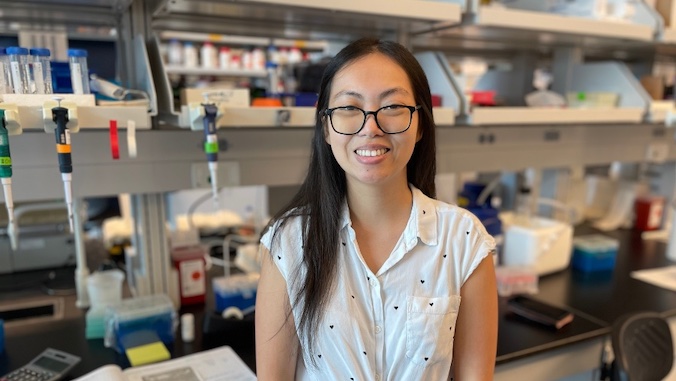
A University of Hawaiʻi at Mānoa graduate student has uncovered new perspectives on heart health and energy metabolism. A study by Katie Lee, a PhD candidate in the John A. Burns School of Medicine (JABSOM), explores the role of the Pyruvate kinase M2 (PKM2) enzyme in the heart’s energy production and stress management. While previous studies have focused on PKM2 in disease contexts, Lee’s work explores its function in healthy hearts.
“People have explored PKM2 in the context of disease,” said Lee. “The disease has already happened, and they’re looking at what can be done with PKM2 to solve it. We wanted to see what PKM2 actually does in healthy hearts, and we discovered that your heart can’t really be healthy without PKM2.”
Energy production, stress management
The study examined mice lacking PKM2 and found a significant depletion of Adenosine triphosphate, the primary energy source at the cellular level. Lee’s research highlights that, without PKM2, glucose intended for energy production is diverted to manage oxidative stress—a harmful condition driven by reactive oxygen species.

“The heart needs a lot of energy to contract and to move blood around your body, so it gets that energy by using a lot of sugars, mostly fats and amino acids,” Lee explained. “We wanted to see if PKM2 made processing glucose more efficient and if it helps maintain energy when resources are limited, like oxygen.”
Unexpectedly, Lee and the team found that, in the absence of PKM2, glucose was redirected from energy production to managing oxidative stress, which is often triggered by dysfunctional mitochondria.
“This has been a paper that we’ve been waiting for years to be published, and it’s been a journey to get all the right pieces together,” Lee said. “If anyone’s interested in reading it, they’ll find years worth of data. I’m happy to push it out and move on to the next part!”
Lee’s journey began as an undergraduate biochemistry student at UH Mānoa and continued through her involvement with JABSOM and the IDeA Networks of Biomedical Research Excellence program. She now studies cardiovascular disease as part of the Cell and Molecular Biology program.

